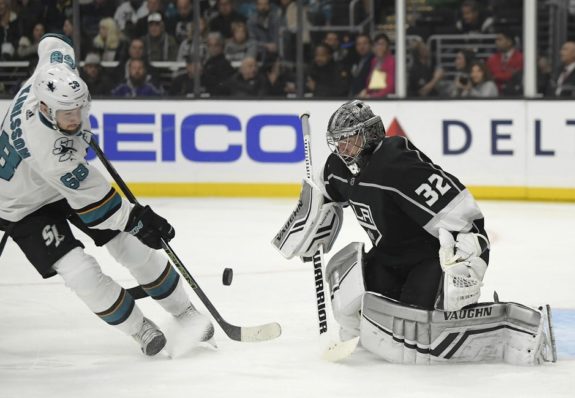With the end of the Qualifying Round on the horizon, one thing has become clear; teams with great defensive structure will advance, while teams who prioritize offense will collapse.
Over the last several seasons, the NHL has seen a steady rise in their offensive statistics, a climb the league has been pushing for years. Gone are the prototypical fourth-liners and the lesser-skilled players, opening up the ice surface and allowing for elite forwards such as Connor McDavid to run wild. (from ‘Connor McDavid, Sidney Crosby in big NHL bubble trouble,’ New York Post, 08/06/2020)

Most thought that offensive uptick would shine through during this unique 24-team postseason, one that saw all teams endure a four-and-a-half month hiatus before play finally began. There have been glimpses of offensive brilliance so far, but teams without star power who rely on a tight-knit defensive structure have done fairly well.
The Columbus Blue Jackets, led by John Tortorella, were one of the stingiest teams in the NHL this season, allowing just 2.61 goals per game. They now have the offensive juggernaut that is Toronto on the brink of elimination. Allowing 2.61 goals per game themselves, the Arizona Coyotes have limited the Nashville Predators, eliminating them from contention..
These two teams have led the defensive charge during this postseason, continuing the trend that has been exemplified by Stanley Cup winners in recent years; a good defense will beat a good offense in the postseason.
Defense-First Mentality Wins the Cup
In 2010, the Chicago Blackhawks captured the Stanley Cup while allowing a modest 2.82 goals per game throughout the playoffs. Since that time, no Stanley Cup Champion has allowed more than that, with the 2012 Los Angeles Kings being the cream of the crop with just 1.50 goals per game during their run.

Defense has to be the priority for any team looking to make an elongated appearance in the Stanley Cup Playoffs. The grueling nature of the games come postseason time make defensive systems paramount for a team’s success. The organizations that can best eliminate their oppositions top-flight forwards ultimately have the most success.
None of these teams have scored at exorbitant rates either, as the Washington Capitals set the high mark with 3.58 goals per game during their championship season in 2018. Evidently, scoring is not as important when teams are unable to find the net against you.
Defensive prowess leading to postseason success is nothing new, exemplified by the New Jersey Devils teams that won the Cup in 2000 and 2003. Those Devils squads were notorious for their defensive trap, which made fans miserable but also led to unprecedented success. The Devils allowed just 1.70 goals per game during the 2000 playoffs and followed that up with a 1.71 total in 2003.
Frustrating opponents offensively has always been the way to Lord Stanley in the NHL, a sentiment that has been put to the test with rising goal totals around the league.
Goal Totals Soar in the NHL
The 2019-20 NHL season saw the highest average goal total per team at 3.02 since the 2005-06 campaign. The goal rate continues to climb, increasing in every season since 2015-16, coincidentally the same season which saw Jack Eichel and McDavid make their NHL debuts.
Scoring has become a focal point for the majority of the teams, with superstar talent up front being prevalent on the rosters of the league’s elite. The Pittsburgh Penguins rode the backs of Sidney Crosby and Evgeni Malkin to back-to-back Stanley Cup titles, while the Capitals relied on Alexander Ovechkin, T.J. Oshie, and Nicklas Backstrom in 2018.
Those two squads finished in the top-10 in regular-season scoring the years they won the Cup, scoring in bunches during their 82-game seasons. Once the postseason came around, these squads were able to maintain a similar offensive pace while buckling up defensively, securing their titles. Some franchises have not been as fortunate, relying too heavily on their offense come playoff time.
The Tampa Bay Lightning is the primary example of a team that has prioritized offense over the past several seasons, leading the league in goals per game each of the past three campaigns. Despite the incredible talent of their forward core and roster, their inability to shore up their defensive zone has been their demise.
The Lightning has failed to bring their offense with them to the postseason, losing in the Conference Final in 2018 and the First Round in 2019. In both the 2018 and 2019 playoffs, Tampa Bay’s goal totals decreased while their goals allowed totals either remained the same or increased. That is not a recipe for success.
Defense in the 24-Team Playoff
With the offensive pace around the league soaring in 2019-20, most assumed that teams would continue the surge come the Qualifying Round. That assumption was put to bed almost immediately, as the Carolina Hurricanes disrupted the New York Rangers and their fifth-ranked offense in Game 1.
The Rangers had averaged 3.33 goals per game during the season, but were held to just four goals in three games by the Canes in the best-of-five matchup. That pattern has continued, as Columbus has held Toronto to nine goals through four games, a total well below the Maple Leafs 3.39 goals per game in the regular season.
The Florida Panthers averaged 3.30 goals per game during the season but found it tough to beat a terrific Islanders’ defense, scoring just seven goals in a 3-1 series defeat. (from ‘Islanders finish off Panthers to earn Stanley Cup playoffs berth,’ New York Post, 08/07/2020) Out west, the Arizona Coyotes stymied the Nashville Predators en route to a 3-1 series win, limiting them to just seven goals in the Coyotes three wins.
Even the Montreal Canadiens, a team that was mediocre offensively (2.93 goals for) and weak defensively (3.10 goals allowed) found a way to ratchet up their defense come the postseason. They eliminated the Pittsburgh Penguins, who were a heavy favorite, allowing eight goals over the four games.

Defense wins championships, and no matter how talented a team is up front, good schematics and defensive play will upend them every time. For teams like the Maple Leafs, Rangers, and Penguins who are built around offensive talent, a defensive overhaul will have to be made before the Stanley Cup becomes a realistic aspiration again.